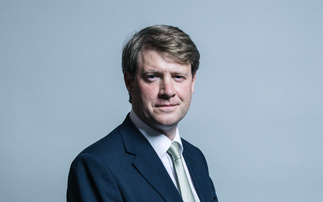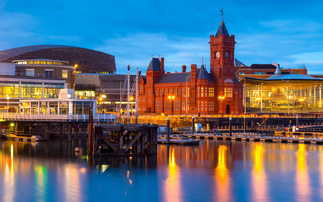US climate envoy says threats by Republican presidential candidates to withdraw from the global agreement would be ‘diplomatic black eye'
President Obama's special envoy for climate change has warned Republican presidential hopefuls including Donald Trump and Ted Cruz that any attempt to scrap the Paris climate agreement would lead to a "diplomatic black eye" for the US.
Speaking to journalists in Brussels, Todd Stern also said that a recent supreme court decision to block Barack Obama's clean power plan would not affect US climate pledges, or plans to formally sign up to the Paris agreement later this year.
Republican candidates such as Trump or Cruz who query climate science on the presidential stump would in practice be "very loathe" to set off the storm that would follow any ditching of the Paris accord, Stern argued.
"Paris as an agreement has such broad acceptance and support around the world from countries of every stripe and region and Paris itself was seen as such a landmark - hard-fought, hard-won - deal that for the US to turn around and say ‘we are withdrawing from Paris' would inevitably give the country a diplomatic black eye," he said.
"When President Bush took the US out of Kyoto - which in retrospect was in fact a quite flawed document - he took lots and lots of diplomatic flak and that, I think, would pale in comparison to what would happen if a president took us out of Paris, which is seen as a strong viable structure that all countries have now bought into."
Trump, the current frontrunner in the Republican race, described President Obama's speech to the Paris climate summit last December as "one of the dumbest statements I've ever heard".
And Cruz, who won the Iowa caucus, has promised to withdraw from the Paris climate agreement, describing Obama's focus on securing a global accord as "nutty".
EU sources say that there is "significant concern" in Brussels about the possibility of either candidate winning the election in November.
"I think everyone is a bit worried about what might happen next," one official told the Guardian. "Everyone wants to make sure that we aren't left alone in a deal we all negotiated together."
The EU is anxious to avoid a Kyoto protocol-type situation where it was the only significant global player obliged to make emissions cuts, after the US and others failed to join in.
"There's a sense that if the US did not join [Paris] it might discourage other major economies like China and possibly India and Brazil from joining," the source said.
International attention has been focused on the recent US court's blocking decision which, if sustained, could cast doubt on at least a third of the emissions cuts promised by the US government in Paris.
Diplomats in China and India have even questioned whether the deal could survive the reassessment of US commitments that this would entail.
Stern pointed out though that the death of the supreme court justice Antonin Scalia earlier this week created the possibility of a "more than slight change to procedural posture" in the supreme court. There is currently a 4-4 balance between liberal and republican judges on the court benches, with President Obama expected to try to appoint a ninth judge in the spring.
"It is hard to tell how this is going to play out, but the supreme court is in a different place right now," Stern said.
He maintained though that the US government had anticipated litigation over its power plant emission cuts - if not the legislative stay granted - and was confident in the underlying strength of its position.
"We think we are going to prevail in the court but we are going to go ahead and sign the agreement this year. Period. And we are not in any way going to back away from our 2025 targets," he said.
References to a capping of global warming a 1.5C in the Paris text were "not a requirement, but a kind of urging," Stern stated.
The US state department has begun an internal conversation about the domestic measures needed by 2050 if the US is to play its part in making this happen. A formal review may begin later this year.
This article first appeared at the Guardian
BusinessGreen is part of the Guardian Environment Network







